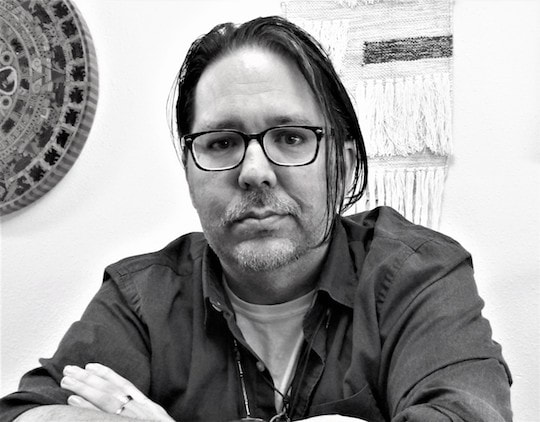An Interview with Brandon Hobson
By Aditya Gandhi, PO '22
Brandon Hobson is an established writer whose previous novel, Where the Dead Sit Talking, was a finalist for the 2018 National Book Award. He recently published his fourth novel, The Removed, a story that traces one Cherokee family’s memories of togetherness, grief, myth, and home in the modern-day U.S. In addition to being a writer, Hobson is an assistant professor of creative writing at New Mexico State University, a teacher at the Institute of American Indian Arts, and an enrolled citizen of the Cherokee Nation Tribe of Oklahoma.
You’ve written four novels now, an impressive feat. What have you learned from writing so much fiction? Has your view of novels changed over time?
Most of my books are short. I'm always learning something new about writing. What I feel is most
important is recognizing what feels alive and what feels dead, what to keep on the page and what to trash. I don't think my view of novels has changed. I love the novel form and find great pleasure in playing in it.
What draws you to fiction in particular? Do you write in other genres, or would you consider doing so?
I love fiction because it's an art form that delivers such a great amount of pleasure in creating worlds and characters. I've written a little bit of nonfiction, but it's not the same pleasure I get in writing fiction.
The Removed speaks a lot to memory—as individual, as familial, as collective, as present and enduring. How do you bring together different types of memory when you are writing a novel?
That's a good question. Mostly I think it's important to think about how structure and point-of-view play a role. In this novel, I wrote from the point-of-view of four different characters each telling their own story and how memory is one of the threads that ties them together.
How do you keep track of as many characters as you write about in The Removed?
I wrote each character's thread separately, in different documents, then I wrote out a short summary of each chapter on Post-it notes and plastered them to my wall so I could see it from a more structural perspective.
What is the importance to you of incorporating mythology into your writing?
I love how stories, even old myths, still have the same qualities that stories have today. I've always been interested in avant-garde fiction, which can be fragmentary and ambiguous and puts some pressure on the reader to do the work.
Who are your biggest inspirations right now, personally or artistically speaking?
So many—Tadeusz Konwicki, Yoko Tawada, N. Scott Momaday, Joy Harjo, Jack White, to name a few.
Most of my books are short. I'm always learning something new about writing. What I feel is most
important is recognizing what feels alive and what feels dead, what to keep on the page and what to trash. I don't think my view of novels has changed. I love the novel form and find great pleasure in playing in it.
What draws you to fiction in particular? Do you write in other genres, or would you consider doing so?
I love fiction because it's an art form that delivers such a great amount of pleasure in creating worlds and characters. I've written a little bit of nonfiction, but it's not the same pleasure I get in writing fiction.
The Removed speaks a lot to memory—as individual, as familial, as collective, as present and enduring. How do you bring together different types of memory when you are writing a novel?
That's a good question. Mostly I think it's important to think about how structure and point-of-view play a role. In this novel, I wrote from the point-of-view of four different characters each telling their own story and how memory is one of the threads that ties them together.
How do you keep track of as many characters as you write about in The Removed?
I wrote each character's thread separately, in different documents, then I wrote out a short summary of each chapter on Post-it notes and plastered them to my wall so I could see it from a more structural perspective.
What is the importance to you of incorporating mythology into your writing?
I love how stories, even old myths, still have the same qualities that stories have today. I've always been interested in avant-garde fiction, which can be fragmentary and ambiguous and puts some pressure on the reader to do the work.
Who are your biggest inspirations right now, personally or artistically speaking?
So many—Tadeusz Konwicki, Yoko Tawada, N. Scott Momaday, Joy Harjo, Jack White, to name a few.

